#Time Out NY
Text
Playwright James Ijames on 'Fat Ham,' the spotlight on Black queerness and life after a Pulitzer
A Q&A with the Pulitzer Prize–winning playwright of 'Fat Ham.'
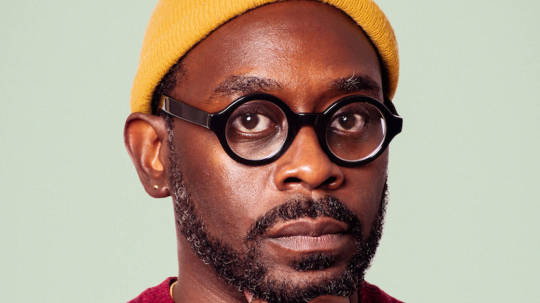
Written by Marcus Scott
Wednesday February 8 2023
James Ijames won the 2022 Pulitzer Prize for Drama for Fat Ham, an irreverent riff on William Shakespeare’s Hamlet that feels like a call to arms for Black joy and queer representation. A jambalaya of satire, magical realism and the American domestic sitcom, the play follows Juicy (Marcel Spears), a morose online-college student, as he tries to come to terms with the marriage of his newly-widowed mother, Tedra (Nikki Crawford), to his Machiavellian uncle Rev (Billy Eugene Jones). “This ain’t Shakespeare,” Ijames noted in the show’s program. “Don’t get me wrong. I love Shakespeare, this just ain’t him. This ain’t a tragedy…This play is offering tenderness next to softness as a practice of living. This play is celebrating Blackness that is traditional and weird and lonely and happy and grieving and honest and frightened and brave and sexy and churchified and liberated and poetic.”
Fat Ham had its world premiere in the spring of 2021 in a digital production by Philadelphia’s Wilma Theater. A year later, it made its onstage debut at the Public Theater, directed by Saheem Ali, and became one of the buzziest plays of the season. On March 21, 2023, that production will begin a limited run at Broadway’s American Airlines Theatre. We chatted over FaceTime with the playwright as he prepared to step into rehearsals.
Fat Ham moves Hamlet from a medieval Danish castle to a modern-day cookout in North Carolina. Why a barbecue?
“Barbecues are cumulative spaces. It starts with a few people and then it grows. There’s food, and people are drinking. It’s a space of truth-telling, it’s a space of game-playing, it’s a space of intimacy and warmth—and it’s where secrets come out. My family recently came together for the Christmas holiday and a cousin of mine made an announcement about being pregnant. Everyone was just so excited and lifted by that; everyone’s energy turned towards them in this really beautiful way. I wanted a space where that sort of collective joy was possible and also where a big, messy argument was possible. Where a fight was possible, where drinking was possible, where eating was possible, where romance was possible. In Shakespearean comedies, when you go outside or into the woods—like the forest of Arden [in As You Like It] or the forest in Midsummer—it’s a space where anything’s possible. There’s magic. We’re not inside, in a cold room in a cold castle. We’re outside: We have decorations, we’re colorfully dressed. We are in the sort of space where magic is palpable and possible.”
Juicy is not your typical Hamlet. He is Black and Southern and, as you describe him in the play, “thicc.” What was the motivation behind that?
“Well, I’m Black and from the South, and that drove my desire to play with people that sound and look like me. When you see productions of Hamlet, he's usually white and sort of athletic. I wanted to make a version of this play that was open to a body type that wasn't that; I'm a person who, for pretty much my whole life, has had some struggle with my weight and my perception of what I look like and how I feel in my body. And another thing I wanted to do was to explore Blackness in the South in a way that felt contemporary, that didn't feel held by history—looking at Southern communities right now as opposed to a nostalgic imagination of the Black South.”
Why did you choose for Juicy to have a passion to study Human Resources in college?
“Human Resources is about care and workflow. Efficiency. I wanted Juicy to have a passion for something that felt antithetical to his father. He wants to make sure people are okay.”
How does that contrast reflect other things about the way you have approached Shakespeare’s story?
“I think the play is exploring multiple modalities of masculinity. We see a lot of different kinds of Black masculinity on the stage. We see Juicy, we see Tio, we see Larry, we see Pap and Rev. And there’s a masculinity that’s implied about the community that they live in, that is sort of present in the room. I wanted to show that masculinity is not monolithic—it’s not as simple or cut-and-dried as it’s often depicted. I also wanted to explore cycles of trauma and violence in families. I’m interested in primordial stories, stories that no matter what culture you walk into, there’s like a version of them. I always think of Hamlet as—and I don't know that a lot of people think of it this way—but I think of Hamlet as a Cain and Abel story: the story of a sibling killing their sibling to get ahead. Anybody can relate to that; that’s a [narrative] that you inherit and moves with you through generations. And the younger folks in the play have to make some decisions about whether or not they want to continue that, whether that’s what they want their lives to look like and their relationships to each other to look like. I’m calling into question the stories that we’ve been passed down as wisdom. Because sometimes it’s wisdom, but more and more I look at those stories as cautionary tales of what you shouldn’t do. Vengeance isn’t gonna help Juicy. Killing his uncle is not gonna help Juicy’s life get any better.”
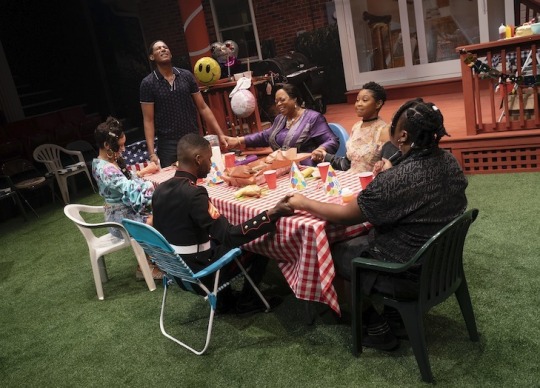
Your breakthrough play was Kill Move Paradise in 2017. How do you think you've changed as a writer since then?
“Oh, gosh. When I look at Kill Move Paradise, that play is quite erratic, you know [he laughs]. I always describe it as the way that I try to metabolize my anger and my fear and anxiety about being a Black body driving around in America, walking around in America, just trying to live my life. And so it has that anxiety in it. It has that fear and nervousness in it. It’s in the text, you can feel it on the page. As I've gotten a little older, I've experienced more and I've written more—the more you write, the better writer you become. I'm more intentional with story, with plot; how I'm weaving a theme or a theory into the action of a play is a bit more sophisticated than it was when I was starting out. The anger is usually shrouded in rebellion or exuberance. At a point in my life, anger sort of dragged me down into a space of high-blood-pressure fury. But I think now the work offers people an invitation to metabolize anger in a different way. By the time we get to the end of Fat Ham, people are dancing in the aisle.”
They certainly are.
“And that is not to negate the fact that we’ve just watched the thing that had pain in it, that had trauma in it, that had violence in it. But just because you’ve been through difficulty doesn’t consign you for the rest of your life to difficulty, to trauma, to pain. We have access to joy, we have access to resilience, we have access to exuberant ecstasy. Black history, in this country in particular, teaches us that: The blues and jazz and hip-hop come out of extraordinary awful scenarios and settings. Those art forms are undeniably both Black, but undeniably exuberant, resilient, unabashed, queer—all of those things! They possess all of those things. When I sit down to write a play, I know that at the end I have to send people out into the world, into the streets, into workplaces, into homes. My hope is that I’m leading them to some hope.”
This play is pretty fantastical, and there are various displays of spectacle and magic. There are also a panoply of images and homages to the Pan-African cultural experience—allusions to Louisiana Voodoo as well as Central African, Creole and Haitian Hoodoo symbology.
“Ghosts are a feature in a lot of my plays. Magic is a feature in a lot of my plays. Because I’m a person who grew up with people who kind of had magical ways of thinking. I grew up Baptist: hardcore, every Sunday, sang in the choir, youth ministry, youth usher—like, I am a church gay! I also grew up in a family that has New Year’s Eve traditions that they do, and will throw salt over their shoulder, or say “Don’t sweep over a single man’s shoe because he won’t get married.” That sort of Hoodoo connection to the spirit world and connection to ancestors was also a big part of the family that I grew up in. And so magic in that respect feels very real to me. Ancestors feel very present—the reverence for people who have passed on is immense. So, to me, the ghost of Juicy’s father showing up isn’t just a specter from this other world that is coming with caution and with information. Juicy is having a conversation with his ancestor and he talks to his ancestor, the way that I talk to mine. The thinness of that veil between here and there—I relish in that, and the theatrical allows you to do that with a lot of ease. I didn’t want the ghost to be a joke. He’s funny—that cat is extremely funny—but he also has these great moments of, like, “Wow, I really messed you up.”
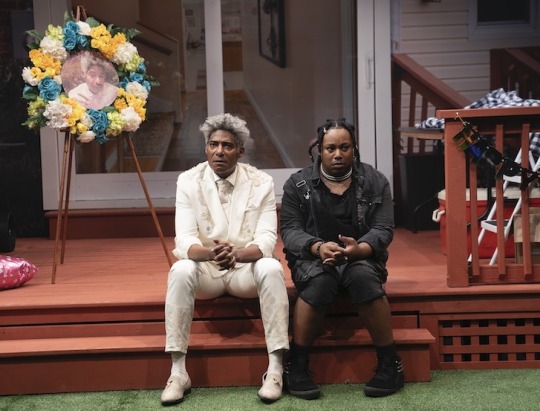
There is a long literary tradition of Black writers explaining Blackness to people who aren’t Black. You don’t do that here. In fact, this play comments on performing Blackness, trauma porn and “enterpainment” on stage—and it’s done with humor. Why was this important to you?
“Humor is powerful. It opens us up to hearing things in a new way. It’s a big part of all of my plays. The question about explaining Blackness is huge to me. I don’t feel like I have to explain Blackness to an audience. I’m assuming that everyone will catch up who doesn’t understand.”
At the end of the show, there’s a cover of the funky dance-pop disco tune “Kill The Lights” sung by Broadway actor Mykal Kilgore. What inspired that particular needle drop?
“I love disco music, just personally. Anybody can dance to it. If you are off-rhythm, you will be on a rhythm with disco music because it’s four-on-the-floor and is just all-encompassing. It strives for ecstasy, it strives for moving from a passage from one state to another. Probably because they were all like using drugs and having sex while they were listening to it in the Seventies and Eighties. But this is a contemporary artist singing in the disco style. It’s not a song from the era. It just moves people! That music moves people.”
If you were to classify your previous plays by genre, with Fat Ham being disco, what would your other shows be?
“Ooh.” [He laughs.] “I think Kill Move Paradise, if I had to put a genre to it, it’s Southern hip-hop, right? It’s sort of grounded in that culture. I would say White is like pop music—it’s like my Ariana Grande album. And Miz Martha is Americana music. It’s like bluegrass with a trap beat.”
Only nine writers of Black descent have been awarded the Pulitzer Prize for Drama in its 105-year history: Charles Gordone for No Place to Be Somebody, Charles Fuller for A Soldier’s Play, August Wilson for Fences and The Piano Lesson, Suzan-Lori Parks for Topdog/Underdog, Lynn Nottage for Ruined and Sweat, and the last four prizes in a row—Jackie Sibblies Drury for Fairview in 2019, Michael R. Jackson for A Strange Loop in 2020, Katori Hall for The Hot Wing King in 2021 and now you. Is something going on in the zeitgeist? Is there something special about Black writers that make their work more urgent right now?
“I think a few things are happening. Black writers and Black directors have been trying to push the form in new directions, to be both in conversation with the cannon and also pushing against the cannon. Those four plays—starting with Fairview and going to A Strange Loop, The Hot Wing King and Fat Ham—all four of those plays are actively doing those things. And so are some plays that haven’t won Pulitzers but have been defining culturally, like Slave Play and things like KPOP. The audience for that work is already there and primed, and it’s just waiting for someone to make art for them, you know what I'm saying? People are curious about what is possible in the form. I remember seeing Fairview and just being blown away by the audacity of it. It made me want to be more ambitious—to create more of a social experiment with my work in collaboration with an audience. I think the same thing is true of A Strange Loop and Hot Wing King in terms of those plays’ exploration of Black queer identity. And that flows rather beautifully into Fat Ham, which is doing the same sort of thing by taking a play that people cherish like Hamlet and saying, ’Not only is this mine, it’s mine in these particular ways, and this is what I’m gonna keep and this is what I’m gonna discard.’ So some of it is just us, as writers, wanting the form to feel as vital and as urgent as possible. And one way to do that is to examine how we write things and try to find new ways into storytelling.”
Those last three plays in particular have centered on Black queerness, and on what we might call radical softness. Is there something in the ether? Was there something in the culture that made us say, “Now that’s something we need to address, to attack, to appraise?” Because it all kind of happened around the same time.
“Hmm. I don’t know. That stretch of plays spanned the heartiest points of the pandemic, and we were all quite hungry for connection, closeness, touch, tenderness. And that offered an opportunity for people to be excited about seeing something that felt soft or vulnerable. I think people respond to that because we want to be better. Culturally, I think, we want to try to do things differently. It remains to be seen whether or not that will continue, but people wanted to engage with things that felt tender, that felt connective, and all of those plays are great examples of that. And I think that’s also true of Fairview; with the separation that it is asking for, it’s asking for people to sit in an embodied space with an idea.”
Last question: How has your life changed post-Pulitzer? Has that changed how people think of you and your work? Or how you think of yourself and your work?
“Oh my gosh! It’s just made my life so much busier, but it’s also made me focus on the work. Refocus on my craft and my practice. I don’t want this prize to freeze me in time. I want to keep pushing and keep expanding what I do.”
Fat Ham begins previews at the American Airlines Theatre on March 21, 2023, and opens on April 12. Tickets are available here. This interview has been condensed and edited for clarity.
Follow Marcus Scott on Instagram:@therealmarcusscott
Marcus Scott

#Marcus Scott#MarcusScott#WriteMarcus#Write Marcus#playwriting#playwrights#playwright#James Ijames#JamesIjames#Fat Ham#FatHam#Broadway#The Public Theater#Public Theater#Time Out#TIme Out New York#TimeOutNewYork#TimeOutNY#Time Out NY
6 notes
·
View notes
Text
Ululation Elation and Dash Five
Ululation Elation and Dash Five
Suspended in Sound
I’ve been working really hard to learn five songs with Kit Krash for an upcoming show in the next couple of days. It seems like this is how we work, nothing slow and steady. It’s a real brain bender to do it this way – and it’s good. I love the immersion. Though, it means I almost have to drop everything else – I have to make time for paid work, meals, relationships.
I wish it…
youtube
View On WordPress
0 notes
Text

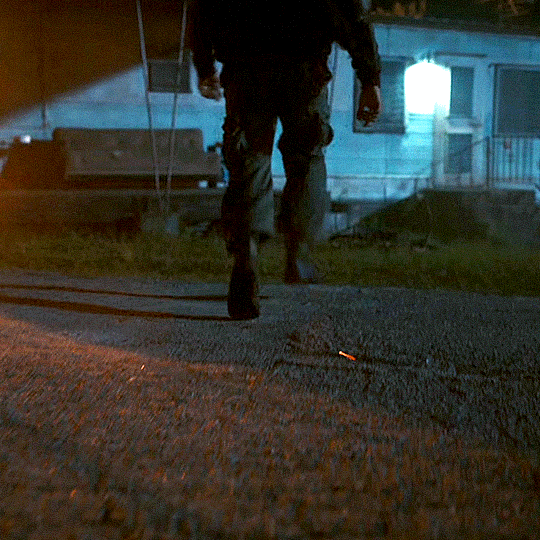
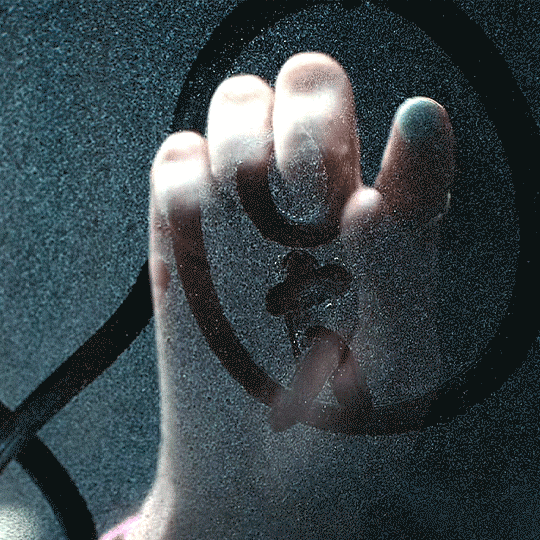
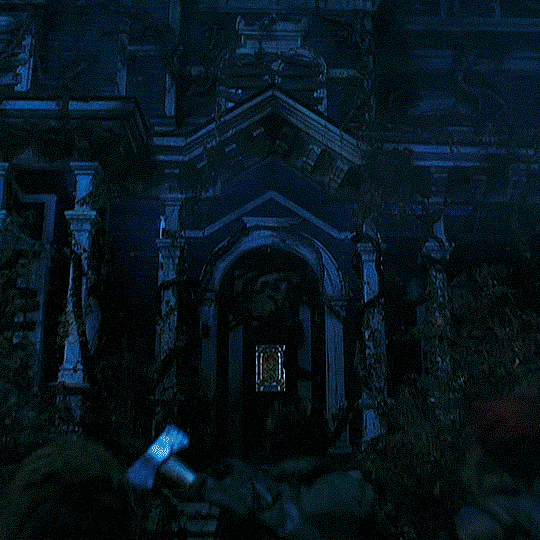
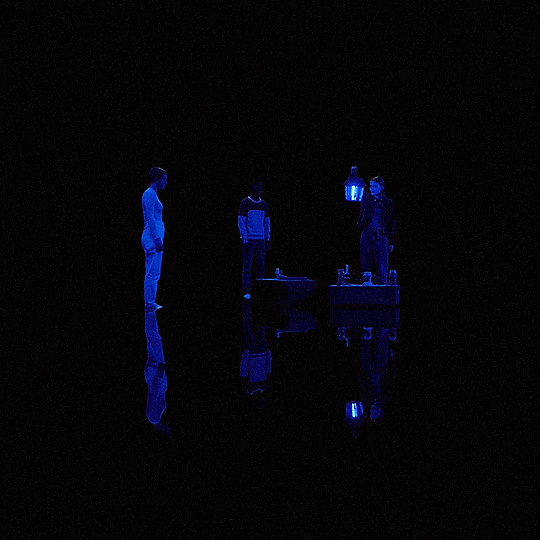
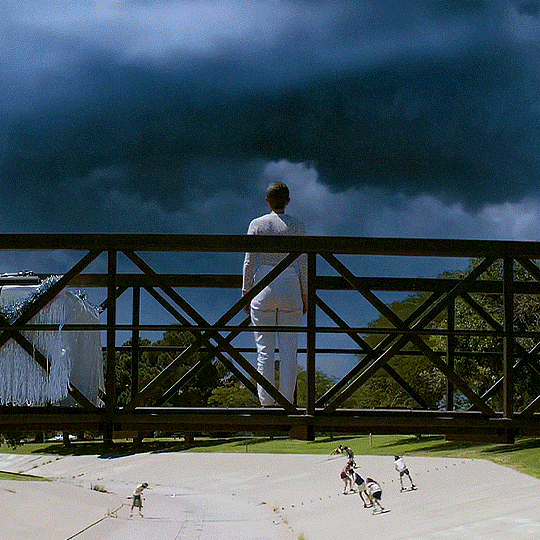
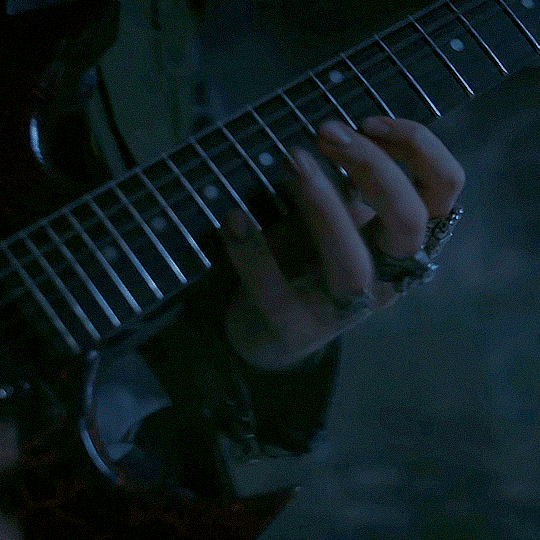

"If you touch her again, I will kill you. Again."
STRANGER THINGS SANS VISAGES
S04E09 - The Piggyback (Part I of II)
#el hopper#max mayfield#eddie munson#nancy wheeler#vecna#st sans visage#st gifs#st edit#my gifs#userallisyn#tuserrae#userkam#usersen#userelz#tuseremilia#useraimz#userpunk#tuserashes#tuserblake#dailystrangerthings#fucking FINALLY#I said I would do this on S4's anni but my bitch ass parents lost my cat while I was in NY and that shook me (she's not found but SEEN atp#also yes. split in 2 as people voted....over a month ago HELP#photoshop also crashed as I made the last gif so I lost the coloring combo for these...pour one out for the second gifset#...THE LAST SANS VISAGES SET OF ALL TIME#holy shit lmao
333 notes
·
View notes
Text

'Won't you stay with me, my darling
When this house don't feel like home?'
Island king au by @pillowspace
#in stars and time#isat#isat siffrin#isat fanart#isat loop#isat art#isat spoilers#isat au#island king au#my art#art#this au has surgically attached itself onto my brain#isat sifloop#sifloop#because why not#everything is sifloop if you want it to be#caption is the lyrics to 'curses' by the crane wives#anyway look at this cool au everyone should think about it always#if it's not clear#the hands belong to the islanders#finally figured out how to download brushes on clip studio#i have downloaded so many#the one i used for this one is ny favourite so far
209 notes
·
View notes
Text
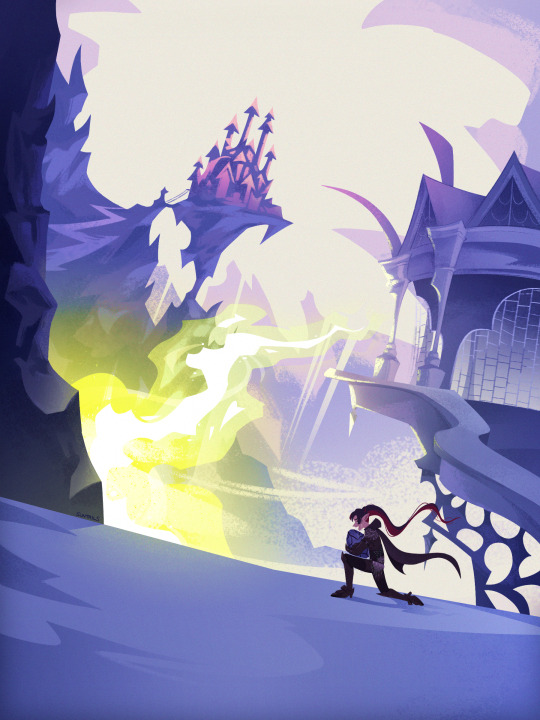
fallen
#KICKS OPEN THE DOOR. HIIIIIII IM BAAAAAACK. TWIRLS MY HAIR AND STARES UNBLINKINGLY AT U#okay so long story short i need to speedrun if i wanna draw ANY lore art this time#bc i go to NY w no computer for 2 weeks on thurs and i wont have nrainrot anymore after. so i need to draw FAST things#so yea. she um. she. died. sniffles. ngl i thought she was already dead from the prev update so this STUNG#the fuckign GRIEF the way lilia collapses down in mourning her loss. she falls to the humans. i am SICK it HURTS#silver was so devastated in 7.5 without even seeing the death firsthand and being like 'how could i ever be loved'#lilia looking at malleus. the future of the kingdom. the treasure of his two closest friends (loves?)#and is like 'how can i ever love him enough' and proceeds to spend A FIFTH OF HIS LIFE SEARCHING FOR A SOLUTION#dealing w prejudice from humans. kicked out of the army Disgraced. all while mourning. he keeps going out of LOVE#twst#twisted wonderland#lilia vanrouge#malleus draconia#hes an egg he counts#ch 7 spoilers#so yea blah blah blah im not as eloquent as u geniuses i will just draw a silly little dramatic art to capture my misery and move forward#suntails
887 notes
·
View notes
Text

"we're going to die together! Isn't that a lovely treat! I wonder how long it'll take. Maybe I'll get to watch the worms lick your bones clean."
"kill me then, if you hate me so much. Just get it over with."
"that sounds...nice. I'm so tired of the bad blood between us, but it's hard to let it go. You've hurt me....and I've also hurt you."
#my art!#slay the princess#the witch#the thorn#the wild#the wounded wild#ahhhh i love the witch!! (+ her adjacent routes) so much!!!!!#i love plant/flower/vine imagery#i love a good “the scorpion and the frog” motif thing!!!!#i love people who have so much hurt and mistrust between them growing and getting better!!!!#or not getting better and getting 10x worse!!! because that's also cool!!!!#witch was the first ever chapter 2 princess that i got and wounded wild was the first vessel that i brought to the shifting mound#(with thorn being my favorite out of the three of them)#they all sorta inspired how i looked at a lot of the game! (my first playthrough of it anyways) and i just adore them all!!!#i played through the witch related routes for the first time on ny first playthrough and it's when i quickly realized that this game#was going to be my favorite thing. like. ever.#oh also before i forget to put it#cw body horror#cw gore#cw blood
76 notes
·
View notes
Text

Fiona Apple, Time Out NY cover
182 notes
·
View notes
Text
Voice actors are NOT the same as actors.
It takes a specific kind of skill-set and training to be able to warp and meld the voice. It takes a certain kind of talent and dedication to hone that talent into the ability to meld the voice and invoke emotion with one's voice alone. Actors are used to using their voice secondarily to their body language and their facial expressions. It's all mirrored back on camera. They do have nuance. But it's a different kind of nuance and a different kind of training to produce that nuance.
Voice actors might get their likeness transposed on their character's design, and maybe their mannerisms might seep into the character's animation. But when it's all said and done: their presence is in their voice. They are bringing a character to life, showing that emotion in their voice, trying to keep a specific accent, drawl, pitch, tone in that voice and keep it consistent for their recording sessions.
The voice actor is like a classically trained musician who can play first chair in a competitive, world-renown orchestra. The actor (who fills the voice actor's role) is like a moot who played violin in beginner and intermediate high school orchestra and thinks they can get into Juilliard with that 2-4 years of experience.
This doesn't mean that the HS orchestra moot can't play. They can even be really good at it. Maybe they won competitions and sat first chair. But they are not in the same league as the person who's been training their whole lives and lives and breathes to hone their craft using the instrument and all of the training they've ever acquired to perfect it. They are not meant for the same roles. They are not in the same caliber. You do not hire the HS equivalent when you want to play complex music in a competitive orchestra.
Actors are not the same as voice actors.
And furthermore, actors - especially big name actors - taking the roles of animated characters for big budget films or TV pilots makes no sense anyways when - at least in the case of TV pilots - there's not a point to hiring a big budget actors anyways. That money could be used elsewhere (like paying your animators), and the talent that is brought onto the screen for X character could then be hired on to voice said character no recasting required.
I wouldn't say voice acting as a profession is in danger exactly, but it's certainly being disrespected and overlooked for celebrity clout, and this has ALWAYS been an issue. Shoot, even Robin Williams knew that much - which is why he tried so hard not to be used as a marketing chess piece for Aladdin and got royally pissed off when it happened anyways. People shouldn't go to any movie (but especially not animated films) because "oh famous actor is in it". People should go because it's a good movie and the voice acting is good.
People who honest to god think that voice actors are replaceable because "oh well anyone can voice act" or "I like xyz celebrity so naturally it'll be good" ... Honestly I just wish you'd reassess your priorities because you're missing the point and are part of the problem.
Voice Actors ≠ Actors.
#(i am incredibly passionate about this)#(and seeing celebrity voice actors in what should be a voice actor's role completely burns my buns it doesn't matter WHO it is)#(hemsworth as optimus? someone tell me one good reason why they couldn't get a good v/a to replace mr. cullen properly for the future)#(ben shwartz as sonic? dude literally isn't even a good voice actor OR actor anyways-)#(- A N D jason griffith AND my boy roger craig smith are still RIGHT HERE)#(jason griffith IN PARTICULAR would have pulled back SO many sonic fans that went to watch the film anyways. if not /more/.)#(and on top of that he has the same tonality and energy they tried to force this moshmo to try and emulate anyways so GET THE REAL THING)#(chris pratt as mario? i can at least defend /him/ and say that barring his failure to do a NY accent consistently he wasn't terrible)#(but mario's new voice actor could've been used instead and people would've clearly appreciated that WAY more)#(vanessa hudgens as sunny starscout in mlp g5's pilot movie? literally why. they replace her and hitch's va in the show.)#(don't even get me started on the concept of hiring celebrity singers to do musical theatre roles or not letting musical theatre singers-)#(-dub the celebrity voice actors you just HAD to hire for your film bc you're so worried about not getting enough clout to get ppl in seats#(that you're putting it all in this (1) big name hire bc turns out that you have no faith in your writing ability much less-)#(-animation as a medium.)#(and no before anyone says anything : no this is not me saying that ALL celebrity voice castings are bad.)#(there are some that aren't that bad and others that are actually pretty good.)#(i especially appreciate it when actors are damn well aware they aren't voice actors and try to LEARN from voice coaches-)#(-and/or their va predecessors if applicable.)#(that does not change the fact that the celebrity shouldn't have been hired just because the film wanted to have bragging clout-)#(-oh look at this FAMOUS PERSON we were able to hire — yeah ok. sure wendy. i want to know if this film is quality or not.)#(and 9/10 times the SECOND there is money spent on a non voice actor to voice the main character especially)#(that usually means somewhere along the way animation IS going to get shafted. if not w the animators themselves then in the way of-)#(-the actual animation itself and ESPECIALLY the screenwriting because it's especially been so dogshit lately even before the strike.)#(a celebrity being hired to fill a voice actor's role is such an immediate red flag to me and it is VERY rare that i get to be proven wrong
85 notes
·
View notes
Text
"he loved her to the point of invention" but it's tony building steve his first pair of gloves with electromagnetic panels on them so his shield comes back to him more easily
#tony in his workshop spending time making something for steve and calling him down to measure his hands and try out the gloves..#he really does adore steve to bits and pieces#stony#stevetony#*#st♡ny#text*
162 notes
·
View notes
Text
WHY DOES THE WORLD OF DARKNESS HAVE SO MUCH LORE???? HOW DOES IT HAVE SO MUCH LORE????? WHO IS WRITING ALL OF THIS FUCKING LORE???? HOLY SHIT IM GONNA LOSE MY MIND
#every time i think i have a grip on some aspect of this universe#i find out theres like an actual entire history surrounding that sect#like the shit between the tremere and the tzimisce and the salubri and GALCONDA#straight up how am i supposed to learn all of this shit#i also refuse to play the actual games#my computer cannot handle that#la by night#labn#ny by night#nybn#vtm#vampire the masquerade#world of darkness#wod
309 notes
·
View notes
Text
2024 Chinese Grand Prix - Sprint Quali - Fernando Alonso
#im too tired to gif but#needed this clip on my blog for posterity#i rly thought we'd get an interview#FALSE HOPE 😭#but i kept joking hed get pole and wow! closer than i expected#that small amnt of time when he was p1 was the most joyful ive been in a while#ny heart was pounding so bad#but look at hom!!!! out top 3 guy!!!!!!#f1#formula 1#fernando alonso#2024 chinese gp
74 notes
·
View notes
Text
also in terms of the bolas playlist it's fascinating to me that the songs added by each person have a slight tendency to represent a consistent aspect of bolas
like
the songs added by slime are their chaos
the songs added by philza are their rebellion
the songs added by cellbit are their rage
the songs added by baghera are their anguish
it's so fucking FASCINATING TO ME but i don't know enough music theory to elaborate lmfao this is Vibes Only
(mouse's songs i can't boil down to an easy noun which is why they aren't mentioned lmao anyway they go hard asf)
(also i went on the longest fucking unhinged elaboration in the tags lmfao i almost didn't have enough tags left to tag "long tags" at the end
(i could have even gone on longer in terms of where their characters were at entering purgatory [philza: cage for a cage; cellbit: fed worker murders; baghera: her past as a federation experiment; slime: turning into a code because of the code pretending to be his daughter] but i ran out of space and also time it's 4AM AAAAA)
#qsmp#qsmp purgatory#this is a sweeping generalization btw esp for baghera's she added a WIDE variety of music#qsmp bolas#sorry i forgot that tag existed lmao#i will elaborate slightly:#slime added: find your flame; gas gas gas extended; waltz of the meatball man; foghorn sound effect#philza added: b.y.o.b.; throne; the melting point of wax#cellbit added: hayloft II; brazilian dança phonk (which roier literally played during purg while beating the shit out of bbh lmao)#baghera added: can you feel my heart; still waiting; and coincidentally she added 'it's been so long' (the fnaf song lol)#TO BE CLEAR THESE ARE GENERALIZATIONS#baghera also added the government knows [REBELLION] and oops [CHAOS]#philza added given up [ANGUISH]#cellbit added zombie [ANGUISH] and tokyo drift [CHAOS]#slime added as above so below [ANGUISH]#it's not a perfect category; ESPECIALLY for baghera's songs i want to make that so clear in these tags#HOWEVER. it is interesting.#anyway i went after lyrics for these examples but just generally when going through the playlist the first time#i kind of learned that like.#music to murder to was probably cellbit; punk millenial music was probably philza#the wackiest shit was probably slime (was shocked to find out tokyo drift was a cellbit song for this reason lmao)#baghera's i usually could only pin down bc it didn't sound like anyone else's#and mouse's added songs i could not describe the vibe if you threatened me for it but it has one#i guess the closest vibe is 'a college radio station run by anime fans' and even then it's not that close#it kinda excludes songs like the b//ad bun//ny songs#unless college anime fans are also fans of them in which case great!#IDK IT'S 4 AM I WAS JUST MAKING MYSELF SAD ABOUT TILIN I NEED TO GO TO SLEEP#shut up vic#block game brainrot#long tags
74 notes
·
View notes
Text
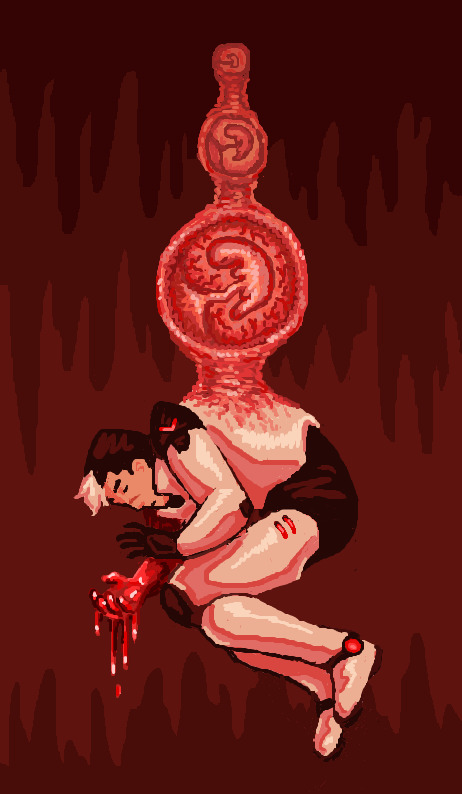
can you remember being born? were you born at all
#my art#kuron vld#vld kuron#vld#this is sorta a companiom piece to the haggar one i posted recently#also. just now realising the perfect timing of posting that drawing on MOTHERS DAY of all possible days#i swear i didnt plan that. didnt even cross ny mind?? but its neat ig#this drawing is pretty simple but i really like how it turned out!!!#it was meant to evoke those infographics of human fetus development#its wrong. there should be middle stages between a fetus and a fully grown adult man. but theres nothing there.#like. he had no childhood or anything. he just woke up as a full ass guy. theres no middle point between a mindless clump of cells and him.#no infant. no child. no teenager. just kuron.#this is wrong and unnatural and it shouldnt have happened but it did#the part of him that looks the most alive is the bloody arm. his life depends on it. hes nothing without it.#sigh. i have so much to say abt this piece and i feel like its pretty barebones and simple tbh#but i still cant put into words what i mean!!!!! i am trying and failing!!! argghhhhhhhhg. whateverr#i have THOUGHTS about this but a weird ramble is all youre gonna get folks. maybe one day il write a small coherent analysis of this thing#he will never escape haggar. he was not meant to. hes asleep and clueless and hell never wake up#he wont ever become more than what was planned for him. and he doesnt even know#blood#gore#i guess. not really gore. more like viscera and flesh?#kuronposting
49 notes
·
View notes
Text
i wish i could be the kind of person that just goes out to have fun ..bar or event or something. but unfortunately i am plagued with the illness (fear)
#cantt remember the last time i just Went out#like just for enjoyment#no needing something from town no chores#like i havent even went to the city in months#and normally thats just taking my brother to the mall#but still#i feel like i haven't done anything fun in a long time#i have the ren faire next month but that cant be ny only social interaction a year. thats horrible#like when was the last time. outside of family#girls night ????? with my coworker i barely talk to anymore. like 3 months ago? thats sad#thatd pathetic#mnot even a girl
30 notes
·
View notes
Text
The funniest thing about taking risks in art is that there is basically no penalty for you if it goes wrong besides a bruised ego. I will wrestle my shit brain into submission and take more risks this year
#the times when i was the most succesful in ny art journey not in terms of technical skill but in#stepping out of my comfort zone and progressing in my education was when I was a kid and couldn’t really conceptualize any#kind of consequence for fucking up#These days I’m in a competition with myself and my lofty expectations#theres some wips I wanna finish that i abandoned because of insecurities a few years back#text
88 notes
·
View notes
Text

Happy New Year 2024! ✨
Best wishes from Anya and her lil bro Jamie 🥹🫶
A bit belated but I wanted it to be the first drawing of this year!!
You can see the scrapped version (which I didn't end up going for simply bc of the lack of time) under the cut
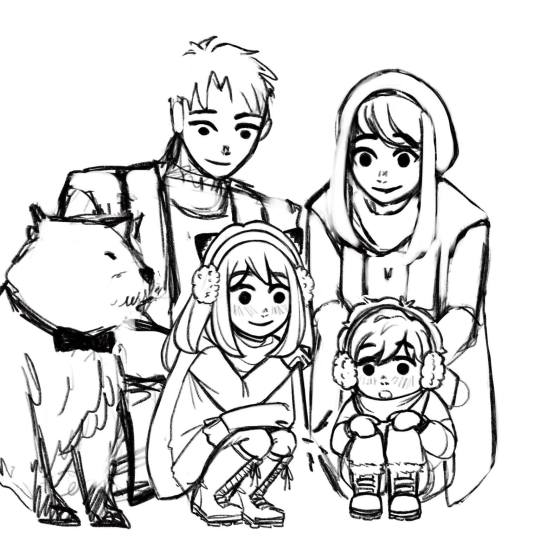
#spy x family#anya forger#james forger#twiyor#siblings#sparklers#fanart#my art#guys i love sparklers SO MUCH#i really wanted to finish this before i post any other art#i meant to finish it for the NY but I didn't have the time and then I thought#meg why rush the new year hasn't even started yet u decide when ur gonna post that#and i was like wow meg wise words wise words indeed#for the record i started sketching out this illu on the 31st :"D#this one is kind of out of my comfort space bc of the lighting but we gotta try out new things right!!
117 notes
·
View notes